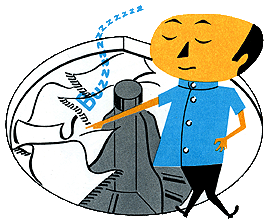|
Thread Number: 69994
/ Tag: Other Home Products or Autos
Internet Warning |
[Down to Last] |

|
Post# 929201 , Reply# 1 3/27/2017 at 11:52 (2,585 days old) by Tomturbomatic  (Beltsville, MD) (Beltsville, MD) |
||
|
Torproject.org is a browser that preserves anonymity.
duckduckgo.com is a search engine that does not collect data on users. | ||
Post# 929210 , Reply# 2 3/27/2017 at 12:23 (2,585 days old) by MattL  (Flushing, MI) (Flushing, MI) |
||
|
I also have a Proton mail account. I have not used it much at this point but that may change quickly. CLICK HERE TO GO TO MattL's LINK | ||
Post# 929212 , Reply# 3 3/27/2017 at 12:26 (2,585 days old) by MattL  (Flushing, MI) (Flushing, MI) |
||
|
Also I've been kicking around the idea of finding a good VPN for some time, but have not drilled down and found one. May have to devote some time to doing just that. Anyone have a good one they recommend?
BTW if you do not know a VPN is : CLICK HERE TO GO TO MattL's LINK | ||
| Post# 929354 , Reply# 4 3/28/2017 at 02:27 (2,584 days old) by Travis () | ||
|
I wonder what someone searches for that requires anonymity? The worst I have ever searched for are random celebrities shirtless. You guys must be really dirty! | ||
Post# 929502 , Reply# 6 3/29/2017 at 00:17 (2,583 days old) by foraloysius  (Leeuwarden, Friesland, the Netherlands) (Leeuwarden, Friesland, the Netherlands) |
||
 | ||
Post# 929533 , Reply# 7 3/29/2017 at 09:06 (2,583 days old) by Tomturbomatic  (Beltsville, MD) (Beltsville, MD) |
||
|
The bill passed the House yesterday and is on the way to the President's desk for his promised signature. | ||
Post# 929561 , Reply# 8 3/29/2017 at 12:54 (2,583 days old) by MattL  (Flushing, MI) (Flushing, MI) |
||
|
Here is something you can do. I have. CLICK HERE TO GO TO MattL's LINK | ||
Post# 929585 , Reply# 9 3/29/2017 at 16:42 (2,582 days old) by Tomturbomatic  (Beltsville, MD) (Beltsville, MD) |
||
|
I just saw a screen crawl that everyone is furious with the non-privacy law and this includes industries with big bucks. There might be some reconsideration. CLICK HERE TO GO TO Tomturbomatic's LINK This post was last edited 03/29/2017 at 17:22 | ||
Post# 929599 , Reply# 10 3/29/2017 at 17:59 (2,582 days old) by Gyrafoam  (Wytheville, VA) (Wytheville, VA) |
||
|
It's too late------ You guys think this is some kind of revelation. If you go on the Internet at all NOTHING is private. You can spend all the money you want for that false sense of security. It's your money. | ||
Post# 929672 , Reply# 13 3/30/2017 at 09:49 (2,582 days old) by Tomturbomatic  (Beltsville, MD) (Beltsville, MD) |
||
|
Sorry, but it has passed both houses, although the news of that has stirred up a firestorm of criticism and protest. The next step is 45's signature. | ||
Post# 929685 , Reply# 14 3/30/2017 at 10:55 (2,582 days old) by Gyrafoam  (Wytheville, VA) (Wytheville, VA) |
||
|
The criticism and protest is twenty years too late. | ||
| Post# 930178 , Reply# 15 4/2/2017 at 09:03 (2,579 days old) by vacerator (Macomb, Michigan) | ||
|
Medical information is protected under the HIPPA act, but we're setting up a VPN anyway. | ||
Post# 930272 , Reply# 17 4/3/2017 at 00:58 (2,578 days old) by MattL  (Flushing, MI) (Flushing, MI) |
||
|
Ok Paulo, you are in the biz, what do you recommend? If anything- TOR, VPN, ??? | ||
| Post# 930298 , Reply# 19 4/3/2017 at 07:23 (2,578 days old) by Liberatordeluxe (UK) | ||
|
Privacy @Tomturbomatic I'm in the UK but none the less I take privacy very seriously like yourself. Would be interested to know which email provider you use and what computer. Do you use Chrome book or Windows or are you an Apple user? | ||
| Post# 930319 , Reply# 20 4/3/2017 at 10:21 (2,578 days old) by vacerator (Macomb, Michigan) | ||
|
Maybe the Prez will veto? | ||
| Post# 930521 , Reply# 21 4/4/2017 at 07:50 (2,577 days old) by vacerator (Macomb, Michigan) | ||
|
No, he signed the totalitarian law. | ||
Post# 932586 , Reply# 22 4/15/2017 at 19:11 (2,565 days old) by Tomturbomatic  (Beltsville, MD) (Beltsville, MD) |
||
|
Nobody has to use the internet From Raw Story via JMG: GOP Rep. Sensenbrenner from Wisconsin said this at a town hall when a constituent asked about internet privacy. CLICK HERE TO GO TO Tomturbomatic's LINK | ||
| Post# 932591 , Reply# 23 4/15/2017 at 19:21 (2,565 days old) by LordKenmore (The Laundry Room) | ||
 | ||
| Post# 932904 , Reply# 25 4/17/2017 at 11:03 (2,564 days old) by Liberatordeluxe (UK) | ||
|
@Warmsecondrinse would you say Apple computers and phones were better for Privacy than Google? | ||

 Comes to the Rescue!
Comes to the Rescue!